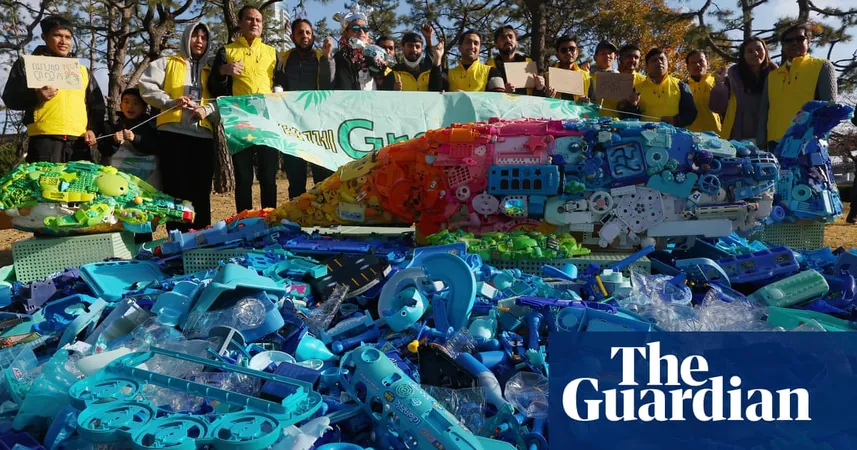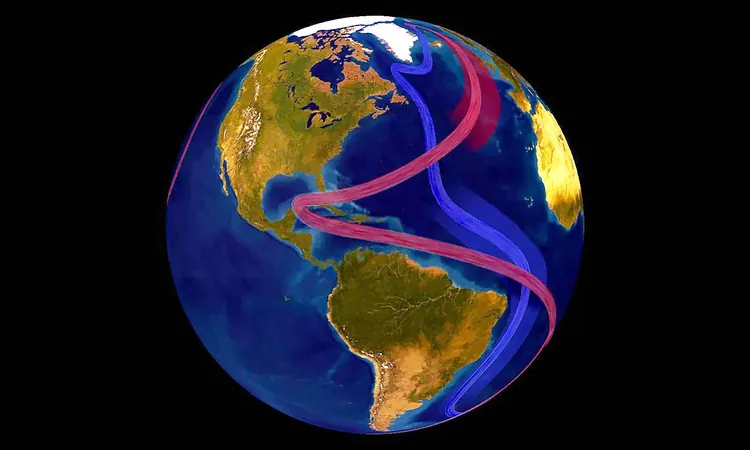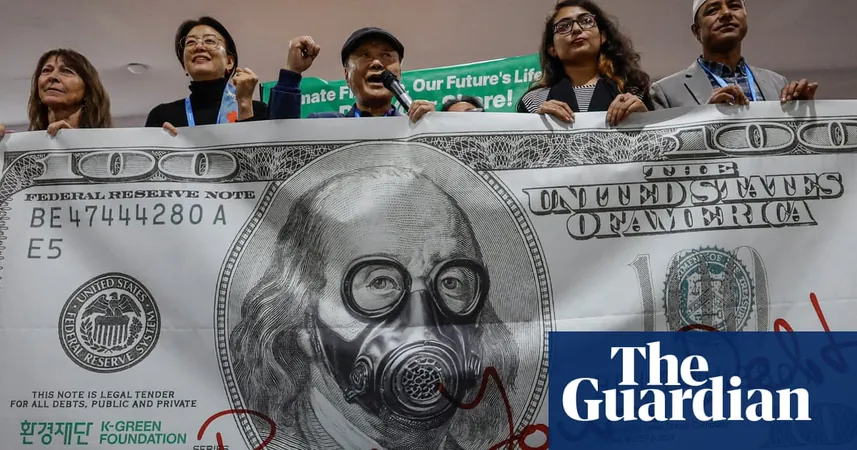
Plastics Lobbyists Dominate Crucial UN Talks on Global Plastic Pollution Treaty
2024-11-27
Author: Emily
In a striking turn of events, record numbers of lobbyists from the plastic industry are flooding global talks in Busan, South Korea—talks deemed crucial for establishing a worldwide treaty aimed at reducing plastic pollution. This summit may represent the last opportunity for negotiators to implement significant measures to curb the pervasive issue of plastic waste plaguing our planet.
The heart of the discussions revolves around the contentious proposal of introducing caps on global plastic production. However, industry lobbyists and major national producers are passionately opposing any restrictions, creating a precarious situation for the negotiations.
A recent study by the Center for International Environmental Law (CIEL) reveals that 220 representatives from fossil fuel and chemical industries—more than ever before—are attending these UN talks. This contingent eclipses other delegations, including the EU and its member states, which together send 191 representatives, as well as host country South Korea with 140 delegates. Alarmingly, the plastic lobbyists' presence also overshadows the voices of the 89 delegates from the Pacific Small Island Developing States (PSIDs), who bear the brunt of plastic pollution's devastating impact.
Among the attendees, 16 lobbyists are part of country delegations, with nations such as China, the Dominican Republic, Egypt, Finland, Iran, Kazakhstan, and Malaysia showcasing weak ties with industry interests. Notably, the plastics representatives outnumber scientists advocating for an effective treaty by a staggering three to one.
Currently, an estimated 460 million tonnes of plastic is produced annually, and projections suggest that this figure could triple by 2060 if existing growth trends persist. In recognition of the urgency, over 900 independent scientists have signed a declaration urging UN negotiators to create a comprehensive and ambitious global plastics treaty aiming to eradicate plastic pollution by 2040. The scientists emphasize that merely improving waste management is insufficient; substantial reduction in plastic production is essential.
However, powerful countries with significant fossil fuel interests—designated as the “like-minded” group, including Saudi Arabia, Russia, and Iran—continue to resist production caps while promoting waste management as the primary solution.
Delphine Levi Alvares, global petrochemical campaign coordinator at CIEL, voiced her concerns, stating, “From the moment negotiations started, industry lobbyists have engaged in familiar tactics of obstruction and misinformation, prioritizing their financial interests over public health and environmental stability.”
The imperative for the treaty is clear: to eliminate plastic pollution. Levi Alvares asserts, “Growing evidence from scientists and affected communities shows that without reducing plastic production, we cannot achieve this end. The choice confronting us is stark: prioritize our health or continue to feed corporate profits.”
Graham Forbes, head of Greenpeace’s delegation, added that the current analysis exposes an industry willing to jeopardize our planet and future generations for profit. “The moral, economic, and scientific reasons are evident. By the end of this week, member states must create a global plastics treaty that emphasizes human health and a sustainable future over corporate earnings.”
Shocking statistics reveal that plastic waste has more than doubled since 2000, skyrocketing from 156 million tonnes to 353 million tonnes by 2019, with a mere 9% ever being recycled, according to an OECD report. Notably, an investigation by The Guardian and Unearthed highlighted that five fossil fuel and chemical companies, who had pledged to reduce plastic waste, actually produced 1,000 times more new plastic than the amount they managed to recycle over five years.
Amid these sobering revelations, companies like Dow and Exxon Mobil—two of the largest plastic producers—stand as the most notable lobbyists with significant representation at the ongoing talks. As the negotiations unfold, the world watches closely, hoping for decisive action against the plastic pollution crisis that threatens the future of our planet.









 Brasil (PT)
Brasil (PT)
 Canada (EN)
Canada (EN)
 Chile (ES)
Chile (ES)
 España (ES)
España (ES)
 France (FR)
France (FR)
 Hong Kong (EN)
Hong Kong (EN)
 Italia (IT)
Italia (IT)
 日本 (JA)
日本 (JA)
 Magyarország (HU)
Magyarország (HU)
 Norge (NO)
Norge (NO)
 Polska (PL)
Polska (PL)
 Schweiz (DE)
Schweiz (DE)
 Singapore (EN)
Singapore (EN)
 Sverige (SV)
Sverige (SV)
 Suomi (FI)
Suomi (FI)
 Türkiye (TR)
Türkiye (TR)